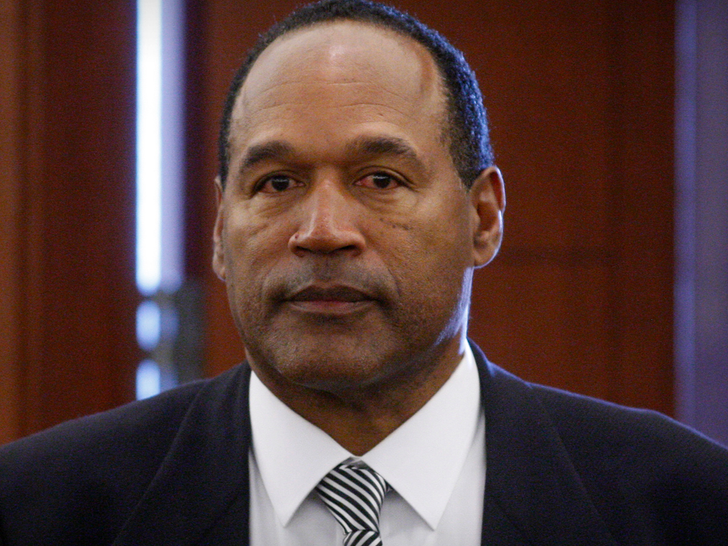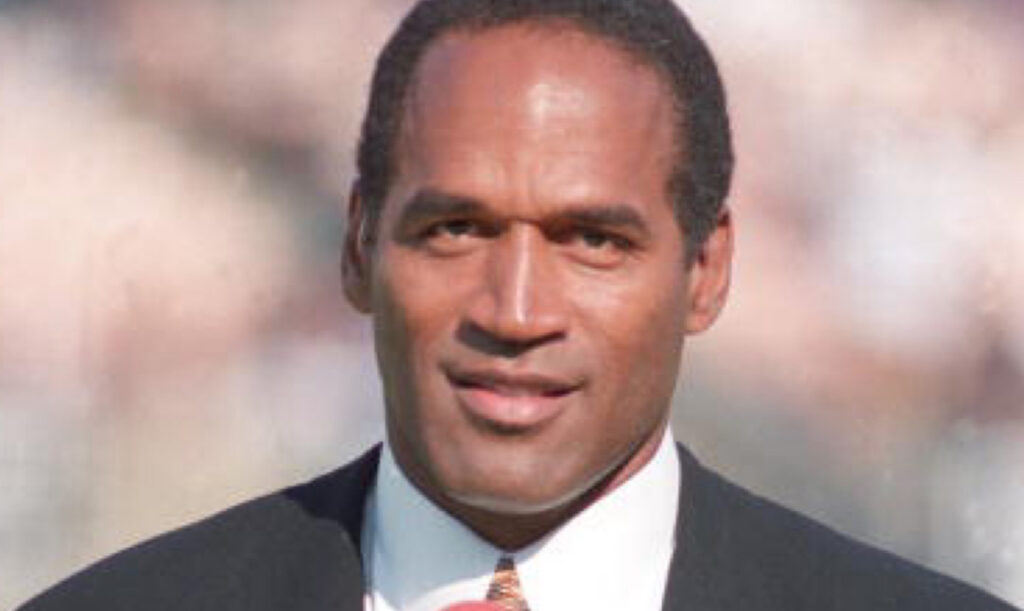The trial of O.J. Simpson remains one of the most infamous cases in American legal history, and the role of O.J. Simpson's judge played a pivotal part in shaping its outcome. This trial, which unfolded under intense media scrutiny, brought the American justice system into the spotlight like never before. Understanding the dynamics of the courtroom and the decisions made by the judge is crucial to grasping the complexities of this landmark case.
The name O.J. Simpson is synonymous with controversy, and the legal proceedings surrounding him have been dissected in countless books, documentaries, and discussions. The judge who presided over this case faced immense pressure, balancing the demands of justice with the overwhelming public attention. This article delves into the details of the judge's role, exploring their decisions, challenges, and legacy.
In this article, we will examine the background of the judge who oversaw the O.J. Simpson trial, their legal philosophy, and the impact of their rulings on the case. By understanding the context in which the judge operated, we can gain deeper insights into the complexities of the American legal system and the challenges faced by those who administer justice.
Read also:How Do You See Your Rider Rating On Uber A Comprehensive Guide
Table of Contents
- Biography of O.J. Simpson's Judge
- Legal Background and Expertise
- Role in the O.J. Simpson Trial
- Key Decisions and Their Impact
- Impact of Media on the Judge's Decisions
- Public Perception and Legacy
- Ethical Considerations in the Trial
- Judicial Philosophy and Approach
- Controversies Surrounding the Judge
- Conclusion and Reflection
Biography of O.J. Simpson's Judge
The judge who presided over the O.J. Simpson trial was Lance Ito, a name that became synonymous with the case itself. Lance Ito was born on October 25, 1950, in Los Angeles, California. His journey to becoming a judge was marked by dedication and a commitment to the law.
Early Life and Education
Lance Ito's early life was shaped by his upbringing in a Japanese-American family in Southern California. He attended the University of California, Berkeley, where he earned a degree in Political Science. Ito then went on to study law at Loyola Law School, graduating in 1976.
Professional Career
Ito's legal career began as a prosecutor with the Los Angeles County District Attorney's Office. His work in criminal law provided him with the experience necessary to handle complex cases. In 1989, Ito was appointed as a judge in the Los Angeles Superior Court, a position that would eventually lead him to one of the most high-profile cases in history.
| Full Name | Lance Arthur Ito |
|---|---|
| Date of Birth | October 25, 1950 |
| Place of Birth | Los Angeles, California |
| Education | University of California, Berkeley (Political Science), Loyola Law School |
| Profession | Judge, Los Angeles Superior Court |
Legal Background and Expertise
Before the O.J. Simpson trial, Lance Ito had already established a reputation as a knowledgeable and fair judge. His legal background included extensive experience in criminal law, which proved invaluable during the trial.
Expertise in Criminal Law
Ito's expertise in criminal law was evident in his handling of pre-trial motions and courtroom procedures. His familiarity with the intricacies of legal arguments and evidence admissibility helped shape the trial's trajectory.
Reputation for Fairness
Judge Ito was known for his impartiality and commitment to ensuring a fair trial for all parties involved. This reputation was put to the test during the O.J. Simpson trial, where he faced immense pressure from both the prosecution and defense teams.
Read also:P Diddy Tequila The Ultimate Guide To Discovering The Premium Spirit
Role in the O.J. Simpson Trial
The O.J. Simpson trial, officially known as The People of the State of California v. Orenthal James Simpson, began on November 21, 1994. Judge Lance Ito played a central role in overseeing the proceedings, ensuring that the trial adhered to legal standards and procedures.
Managing Courtroom Dynamics
One of Ito's primary responsibilities was maintaining order in the courtroom. The high-profile nature of the case attracted significant media attention, which sometimes created challenges in managing the trial's atmosphere.
Handling Pre-Trial Motions
Before the trial began, Judge Ito presided over numerous pre-trial motions, including decisions on evidence admissibility and jury selection. These decisions were critical in shaping the trial's outcome.
Key Decisions and Their Impact
Throughout the trial, Judge Ito made several key decisions that had a lasting impact on the proceedings. These decisions were often scrutinized by legal experts and the public alike.
- Evidence Admissibility: Ito ruled on whether certain pieces of evidence, such as DNA samples and bloody gloves, could be admitted into the trial.
- Jury Selection: The process of selecting an impartial jury was complex and required careful consideration by the judge.
- Media Restrictions: Ito imposed restrictions on media coverage to ensure that the trial remained fair and unbiased.
Impact of Media on the Judge's Decisions
The O.J. Simpson trial was one of the first cases to be broadcast live on television, bringing the courtroom into millions of homes. This unprecedented media coverage placed immense pressure on Judge Ito, who had to balance the demands of justice with public opinion.
Challenges of Media Scrutiny
Ito faced criticism from both the media and the public for some of his decisions. However, he maintained that his primary responsibility was to ensure a fair trial, regardless of outside influences.
Role of Public Opinion
The public's perception of the trial was heavily influenced by media coverage, which sometimes created a disconnect between the legal proceedings and public sentiment. Judge Ito navigated this challenge with professionalism and integrity.
Public Perception and Legacy
After the trial concluded, Judge Ito's decisions were subject to intense scrutiny. Public perception of his role in the trial varied widely, with some praising his fairness and others criticizing his handling of certain aspects.
Legacy in Legal History
Despite the controversy surrounding the O.J. Simpson trial, Judge Ito's legacy remains significant in the annals of legal history. His decisions and courtroom management set precedents for future high-profile cases.
Ethical Considerations in the Trial
The O.J. Simpson trial raised important ethical questions about the role of judges in high-profile cases. Judge Ito faced challenges in maintaining ethical standards while dealing with intense media scrutiny.
Commitment to Justice
Ito's commitment to ensuring a fair trial for all parties involved demonstrated his adherence to ethical principles. His decisions were guided by the law, rather than public opinion or media pressure.
Impact on the Legal System
The trial's outcome and the judge's decisions had a lasting impact on the American legal system, prompting discussions about the role of media in the courtroom and the importance of judicial impartiality.
Judicial Philosophy and Approach
Judge Ito's judicial philosophy was characterized by a commitment to fairness, impartiality, and adherence to the law. His approach to the O.J. Simpson trial reflected these principles, even in the face of significant challenges.
Impartiality in the Courtroom
Ito's ability to remain impartial throughout the trial was crucial in maintaining the integrity of the legal process. His decisions were based on legal principles rather than external influences.
Adaptability in Complex Cases
The complexity of the O.J. Simpson trial required Judge Ito to adapt his approach to address unforeseen challenges. His flexibility and problem-solving skills were instrumental in navigating the trial's complexities.
Controversies Surrounding the Judge
Despite his commitment to fairness, Judge Ito faced controversies during and after the trial. Some criticized his handling of evidence and courtroom procedures, while others praised his dedication to justice.
Critical Analysis of Decisions
Legal experts and commentators analyzed Ito's decisions in detail, offering varying opinions on their merits and drawbacks. These analyses contributed to a broader understanding of the complexities involved in high-profile cases.
Public Reaction and Criticism
The public's reaction to Judge Ito's role in the trial was mixed, reflecting the polarized nature of the case itself. His ability to withstand criticism demonstrated his resilience and commitment to upholding the law.
Conclusion and Reflection
The O.J. Simpson trial remains a defining moment in American legal history, and Judge Lance Ito's role in the case was instrumental in shaping its outcome. His decisions, though controversial at times, were guided by a commitment to justice and fairness.
In reflecting on the trial, it is important to recognize the challenges faced by Judge Ito and the broader implications of his decisions for the legal system. The case highlighted the complexities of administering justice in a media-saturated environment and underscored the importance of judicial impartiality.
We invite you to share your thoughts on this article and explore other content on our site. Your feedback is valuable in helping us provide informative and engaging content for our readers.
Data Sources:

:max_bytes(150000):strip_icc():focal(999x0:1001x2)/oj-simpson-1-29f9611507eb403284df7d2c0564fa78.jpg)

